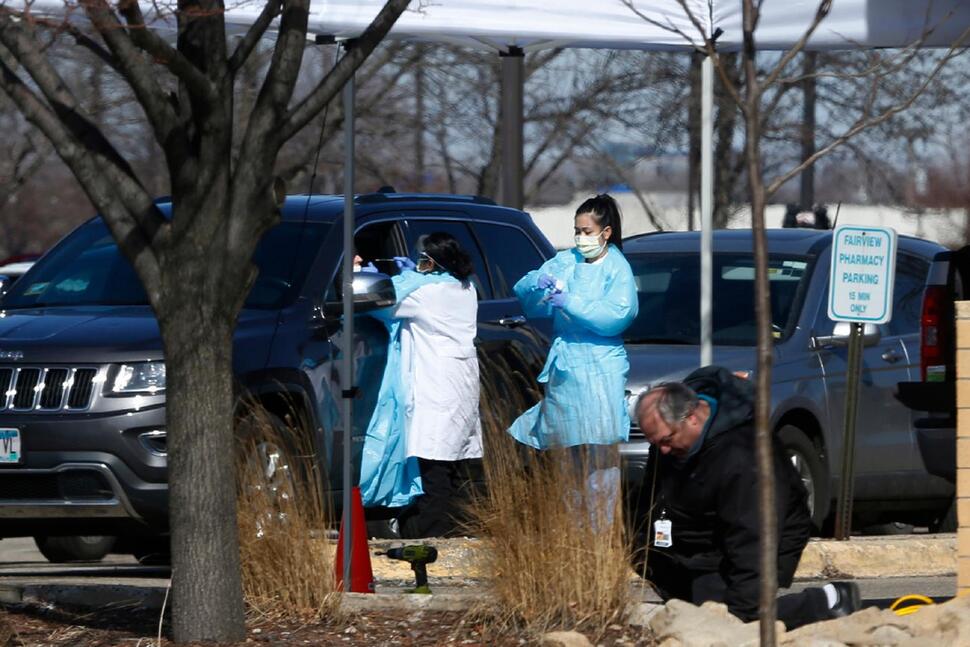A new Pew report praises states that have strong rainy day funds but suggests others will have a more difficult time dealing with a coronavirus-related recession.
States such as Minnesota and Utah that both conduct regular stress tests to prepare for unexpected shocks to economic growth and tax revenues and that have robust rainy day funds are among those better positioned to ride out the worst of the ongoing coronavirus-fueled economic crisis, according to a Pew Charitable Trusts report published on Thursday.
Pew suggests states that are well positioned to weather coronavirus-related economic upheaval have four common policies in place:
- They conduct budgetary stress tests and have identified a range of economic scenarios that helps them plan accordingly.
- They’ve built up healthy rainy day funds to support them during a crisis.
- Their legislatures are flexible and are not tied down by onerous restrictions.
- They’ve avoided unsustainable budgeting and haven’t enacted steep tax cuts or spending increases in recent years.
The report lauds Minnesota, Utah, New Mexico and California for their budgetary stress testing, which is a process similar to what is required by banks under 2010’s Dodd-Frank Wall Street Reform and Consumer Protection Act. State stress tests annually look at different scenarios for economic downturns and tax revenue disruptions to determine how well a state’s budget would hold up in the midst of an unexpected shock. The report also praises Virginia and Massachusetts for establishing rules and tax regulations that have helped build up their rainy day funds, allowing them to maintain normal operations for a longer period of time during a window of economic uncertainty.
“Today, states face the greatest test to their budgets since at least the 2007 to 2009 recession, and perhaps in modern history,” Josh Goodman, a senior officer of economic development and state fiscal health at Pew, said during a conference call on Wednesday. “A lot of people are trying to figure out which states will be most affected. Is it the states most dependent on tourism? Is it the ones most dependent on oil revenue?”
“No one’s really quite sure, because no one’s sure how the rest of the pandemic is going to play out and then, sort of, how the economy’s going to change after that,” Goodman said.
The report identifies Kansas, Kentucky, Illinois, New Jersey and Pennsylvania as having very little in their rainy day funds – meaning they didn’t have nearly as much cushion as some other states had heading into the coronavirus crisis. A separate series of Pew rankings identified those five states as having the smallest rainy day funds in the country. On Wednesday, Goodman added Alaska to a list of budget-strained states “where the situation will probably be more difficult as a result.”
Goodman also cautioned that the federal government’s decision to push back its tax deadline from mid-April to mid-July will be “significant” for states in that officials won’t have accurate tax revenue data to plan their budgets accordingly. In several states, the fiscal year begins July 1, meaning they’ll receive 2020 tax revenues after their 2021 fiscal year begins.
“In terms of using data to estimate revenue collections, that’s something that every state has to do,” Goodman said. “States really, right now, are trying to get a handle on what this all means for revenue collections. How bad will it be this year, and how bad will it be next year?”
Goodman said states are in a better position to weather the coronavirus outbreak than they were at the onset of the Great Recession – suggesting they learned lessons from the tough budgetary decisions they had to make a little more than a decade ago.
But the swiftness of the coronavirus outbreak’s economic upheaval is unlike anything seen in modern history. Roughly 10 million Americans filed for unemployment during the final two weeks of March – a number that experts believe underestimates the severity of joblessness in the U.S., given many state unemployment offices reported being overwhelmed by the influx of claims, delaying processing times.
As of Thursday morning, more than 432,000 Americans were confirmed to have been infected by the coronavirus, according to data from Johns Hopkins University. More than 14,000 have died.



